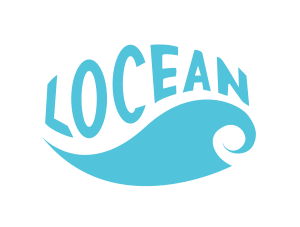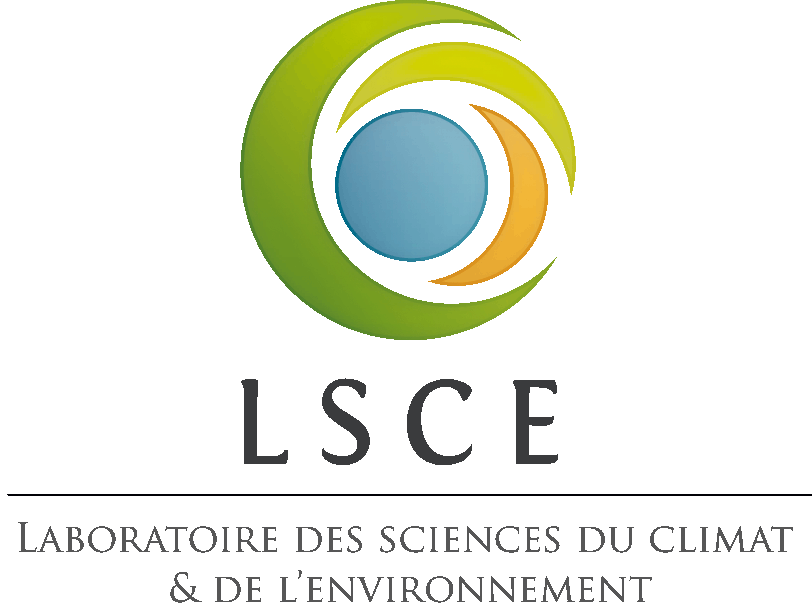Labs
Partner 1 : LSCE
The LSCE is a joint research unit (UMR 8212) between CNRS, CEA and the University of Versailles Saint-Quentin (UVSQ), located on the Orme des Merisiers site in Gif-sur-Yvette. With a staff of over 350, including 150 permanent employees, the LSCE is part of the Institut Pierre-Simon Laplace (IPSL) and the Université Paris-Saclay.
LSCE is organized into three main scientific themes:
- Archives and tracers ;
- Biogeochemical cycles and environmental transfer;
- Climate and cycles, modeling their variability and interactions.
Each of these themes brings together between 4 and 7 research teams working on common tools and/or research topics.
This organization is supported by administrative and technical teams (IT, health, safety, environment).

Partner 2 : LOV
LOV's four main missions are research (knowledge production), observation, teaching and knowledge dissemination. They are part of the study of the world ocean, and in particular its response and contribution to global change, with the aim of predicting the future evolution of its ecosystem services. The focus is on offshore, coastal and nearshore areas, as well as exchanges at the air/sea/land/shore interfaces and, in the sea, the water column. The variables studied belong to the disciplines of biology, chemistry, biogeochemistry and physics (optics and hydrodynamics).
LOV's scientific objectives are to elucidate problems of general interest in fields where its researchers have acquired recognized expertise in biology, ecology, chemistry and biogeochemistry: global estimates of marine and estuarine biogeochemical fluxes, with a focus on the contribution of atmospheric inputs, particle dynamics, the biological carbon pump, soot carbon, ocean acidification and warming, ocean planktonic genomics, bioregionalization dynamics of planktonic communities (phytoplankton, zooplankton, fish larvae), invasive or harmful species (dinoflagellates, jellyfish... ), viruses, microzooplankton and microplastics.
Partner 3 : LOCEAN
The Laboratoire d'Océanographie et du Climat : Expérimentations et Approches Numériques conducts studies on the physical and biogeochemical processes of the ocean and their role in climate in interaction with marine ecosystems. Its research teams, widely recognized at international level, cover a wide range of time and space scales to gain a better understanding of ocean dynamics and variations within the climate system, as well as present, past and future trends. They also contribute to the development of analysis, modeling and observation methods, as well as to systematic ocean observation, both in situ and from space.


Partner 4 : EPOC
The EPOC Joint Research Unit (UMR 5805 Environnements et Paléoenvironnements Océaniques et Continentaux) is a joint research laboratory of the CNRS and the University of Bordeaux. EPOC is a multidisciplinary unit made up of chemists, physicists, biologists and modelers. EPOC focuses on coastal and littoral ecosystems and geosystems, and covers a wide range of research fields including coastal dynamics, ecotoxicology, environmental chemistry, ecology, ecophysiology, geochemistry and biogeochemistry.
EPOC's research activities focus on the functioning and dysfunction of aquatic ecosystems (freshwater, coastal and open sea). The mechanisms governing the health and quality of coastal ecosystems are studied at different hierarchical levels: molecular, cellular, community and population.
Partner 5 : CSM
The CSM has three research departments : the Marine Biology Department, the Polar Biology Department, and the Medical Biology Department.
The work of the Marine Biology Department focuses on the physiology and ecophysiology of corals (reef-building corals, deep-sea corals, precious corals), mainly studying the mechanisms of biomineralization and symbiosis in these organisms, and the impact of ocean acidification on these processes. The CSM has been cultivating tropical corals under controlled conditions for research purposes since 1990, making it the world's longest-running scientific coral culture facility. The department is also developing work in environmental economics, mainly on the ecosystem services of coral reefs and the potential impacts of climate change.


